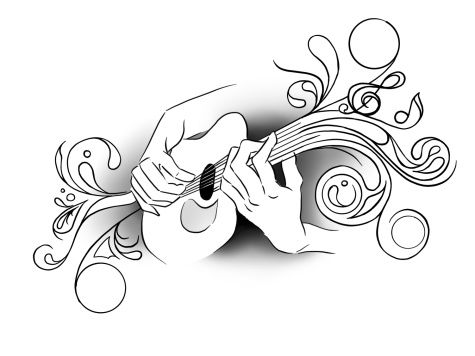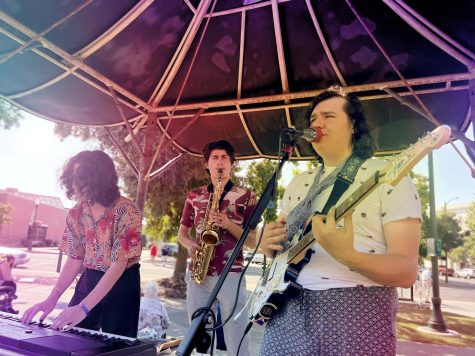(You’re not a) Brooklyn Baby
March 2, 2023
“I believe in the country America used to be,” says Lana Del Rey breathily in the video-only intro to her song “Ride.” The video pictures a denim-clad Del Rey moving through southwestern deserts, riding on the back of motorcycles and wrapping herself up in an American flag, among other scenes of distilled Americana. This video came at the initial peak of her musical career, 2012, off of her album “Born to Die: The Paradise Edition.” Americanness, at this point in her career, saturated Del Rey’s lyrics. It was discussed as a trait that someone could have, or a romantic maladaptive daydream.
Just a few weeks ago, Del Rey released her latest single “A&W,” or “American Whore,” a track that discusses the grief of womanhood and the intricacies of romance within the American landscape from a new perspective 11 years after “Ride.” With Del Rey back in the public eye, her listeners once again perceive her self-specific portrayal of the eternally evolving experience of living in America, and America itself.
Del Rey stepped deftly into the role of the glamorous Hollywood ingenue, creating an intensely curated and consistent aesthetic in her videos and lyrics that wore the visuals of post-war America. This post-war period of the 1950s – the seminal creation point for the aesthetic of Americana as many know it today – is near and dear to Del Rey’s visuals. Her songs refer to American greats: she quotes lines from Whitman and Nabokov (a Russian, but arguably one of the greatest portrayers of Americana), references Marilyn Monroe, Elvis and Bruce Springsteen, among numerous others.
Though Del Rey’s portrayal of America has been called out many times for irresponsibility, there is an underrepresented but nonetheless powerful nuance under her seemingly reckless romanticization. Her repeated association between the toxic men that she falls for and her country point to a sentiment held by a great deal of wronged American citizens who were sold an image of America from an early age. Their hope is that, like a cruel lover, America will get better one day; its “romantic” past and its intermittent glamor might represent a deeper structural goodness. This is something that Del Rey repeatedly struggles to find in both her men and her country.
This sentiment is also one held by many followers of cult-like political figures like Donald Trump, who promised to “make America great again” for everyone, but never ultimately fulfilled these lofty claims. Del Rey’s view of America as an abusive or unfaithful lover became particularly relevant in the political circumstances of the Trump administration. This metaphor is easily relatable to anyone who has fallen into the trap of maintaining hope for their politicians who promise to fix crucial social problems, but ultimately do nothing.
I find myself wondering if America really has wronged Del Rey enough for her to authentically liken her experience of living in this country to heartbreak. I also wonder if her own heartbreaks excuse Del Rey’s romanticization of American imagery at all.

Del Rey’s father is a millionaire who allegedly funded her musical career. She is white and conventionally beautiful. She often writes from her mansion in the Hollywood Hills. In 2017, she issued a statement to Harper’s Bazaar in the wake of Donald Trump’s election that she would no longer be using patriotic aesthetic imagery in her tours and videos because, “It would feel weird to me now — it didn’t feel weird in 2013.” Her sudden awareness nods to a concerning lack of previous consideration for the associations tied to the American flag and to the history of America itself as pertains to other oppressed minority groups.
She is still, above all this, a woman; a factor that should not be overlooked when trying to understand Del Rey’s perspective on America. She has been incredibly privileged throughout her life in many ways, but not in every one. While occasionally inconsiderate to the implications of Americana, Del Rey’s music represents one psychological method of rationalizing the interpersonal hardship of being a woman in America.
Del Rey harnesses the aesthetics that have in America’s past been forced upon women and harnesses them for a purpose. Whether this is an aspirational way to handle the boxes women are now and have been in the past is highly debatable, but it alleviates some of the concern that comes from hearing lyrics like, “He hit me and it felt like a kiss.” This can be seen as Del Rey showcasing her experience of the abuse that exists in both the minds of her men (the active figures abusing her) and her country (a passive force that enables violence against women).
Over time, her lyrics have grown more transparent about their socio-political leanings. It should be acknowledged that she underestimated the expectations of her platform in her early career; this is a truth that allowed her to be genuine to a fault about her own romanticization of America through her experience as a woman in relationships with men. It also failed to provoke her to clarify her messaging in ways that would have made it less dangerously interpretable for non-skeptical listeners.
There is a problem with our country’s portrayal of pop stars: they are forced to be successfully aspirational or failures, and this is why her listeners occasionally interpret her music to be a guidebook rather than a retelling of personal experience and struggle. She is at last reframing the idea of what it is to be a woman in America that she has wrestled with so frequently throughout her career. She is finally creating a critical estimation of America that begins to grapple with its flaws and the absence of promises of equality and liberty for women and other oppressed groups living in here.







